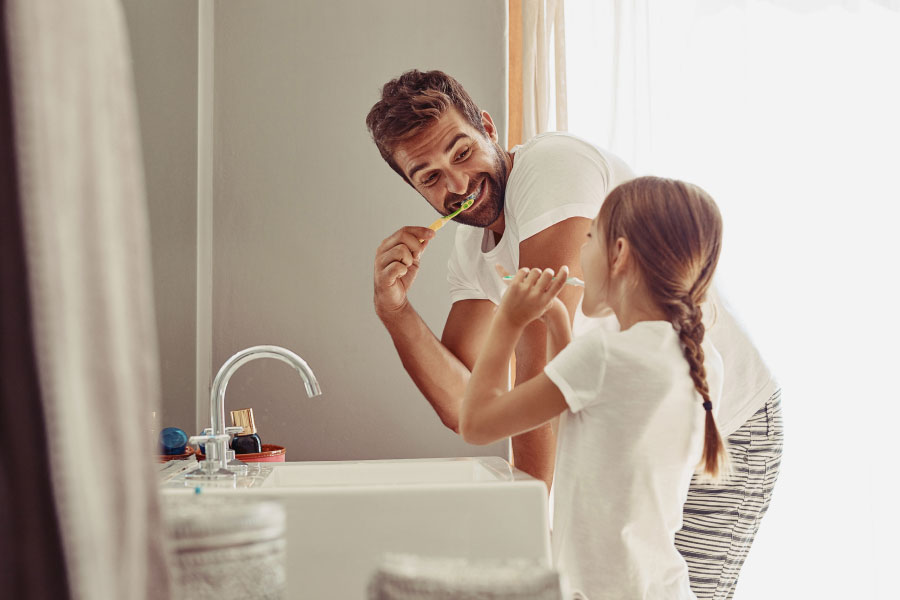
The best thing you can do to maintain a healthy smile is visit our office twice per year and establish a thorough at-home oral hygiene routine. The step-by-step routine that you end up following every day will depend on you and your specific oral health needs, but we have outlined a basic oral care routine below that can help you keep your teeth and gums clean and healthy!
Brush Your Teeth
Brushing teeth twice per day is the foundation for most oral care routines. When you are brushing your teeth, be sure to brush for at least two minutes, and use circular motions to clean each tooth properly (or even better, use an electric toothbrush). Some patients need toothpastes that are specially formulated for gum disease, sensitive teeth, or strengthening enamel, while others choose toothpastes that fight dry mouth, bad breath, or contain whitening properties. Our team can also offer toothpaste recommendations for your smile if you would like.
Floss
Flossing is an important step in a good oral care routine that many people miss. Flossing helps to remove any plaque or food particles that have collected in between the teeth during the day that a toothbrush just can’t get to. Floss holders are an easy way to make flossing quicker for patients who feel like flossing takes too long. Waterpiks are another excellent addition to an oral care routine, especially for patients who have metal braces and want a faster way to clean in between their teeth.
Rinse with Mouthwash
Mouthwash is not as essential as brushing and flossing your teeth, but it is a great step to add to your nightly routine. Mouthwash helps kill off harmful bacteria and reduces your chances of developing plaque, gingivitis, and tooth decay. Some mouthwashes also help build enamel and contain teeth whitening properties. It’s important to look for a therapeutic mouthwash that offers these benefits and doesn’t just make your breath minty fresh (although that’s a great benefit too!)
Wear Your Nightguard
If you have a custom nightguard that you wear to prevent your teeth from clenching and grinding, you’ll want to make sure that putting it in is always the last step of your oral care routine before going to bed. This quick and easy step can prevent you from having to schedule time-consuming, invasive, and costly dental procedures down the road. If you don’t have a nightguard but believe you may need one, please let our team know, and we’ll be happy to assess your situation and create one for you.
Contact Us